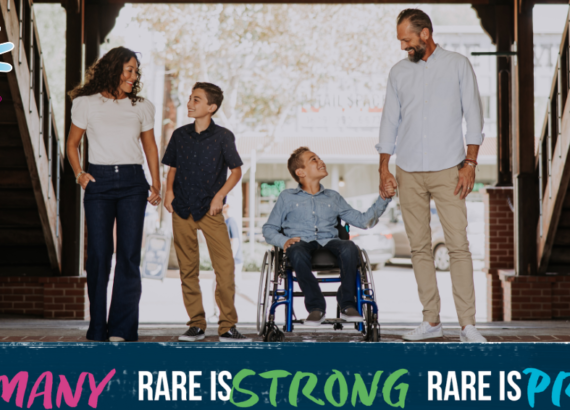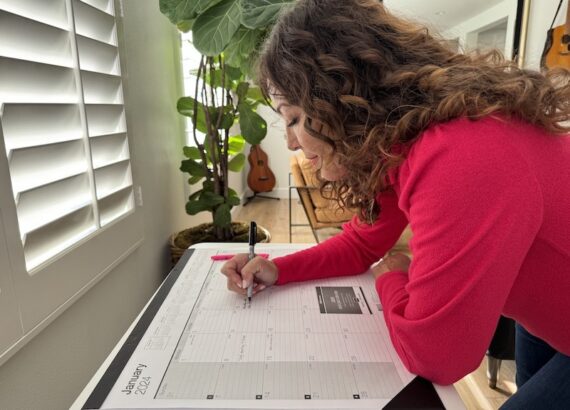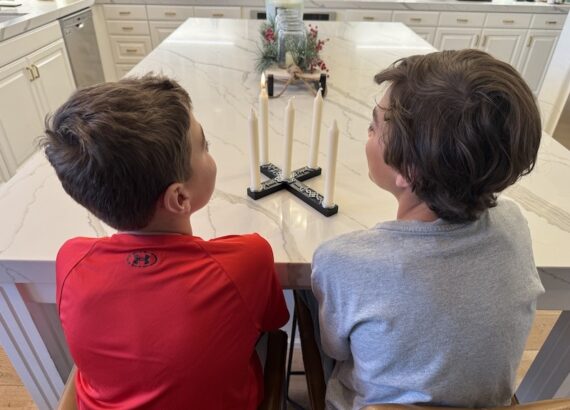TIPS FOR EFFECTIVE RARE-Disease Advocating

Advocate, advocate, advocate. ’Cuz guess what? No one else is going to. I’m not saying that to sound bleak, but it was a wake-up call for me. I thought the system was different. I thought someone else would do it. But the truth is that this one falls on you. You are your child’s best rare-disease advocate. I do believe that doctors, experts, school staff, and therapists are all trying their best to advocate for your child, but there are too many patients, students, and clients for the burden to fall only on them. You’re the parent, and not only is it your job to advocate, but it’s also your right. Rare-disease advocating is a vital part of rare-disease parenting and the rare-disease fight! So advocate your tail off, girl!
If you think something needs to be looked at again, ask for it. If you think your child’s therapist is not a good fit, ask for another one. If you think your child’s medication is incorrect, speak up. If you think your child needs more services at school, tell them. If you think your child’s therapy needs to continue, don’t let it be discontinued.
Speak up. Ask. Act.
Be not a wildflower, a bystander, or an observer. Be not uneducated, unknowing, or unworthy. Be not too scared, too shy, or too insecure. Instead, for the sake of your child, be bold, be fearless, be relentless. Be involved, be a part of the team, be collaborative. Be educated, be deserving, be expectant.
The best way I can explain how you’ll need to advocate is to be assertive but with kindness. I call this “bold and benevolent.” Being bold is knowing what you need and not being afraid to ask for it. In order to advocate, first you have to be knowledgeable about what your child needs. Do your homework and know what you’re asking for. Next, you need to ask for it—while also being benevolent.

So here’s the thing about rare-disease advocating: it’s a balance. If you don’t ask, you’ll never know if you can get what you need, and therefore you’ll never get it. But on the other side, if you just walk around roaring all the time, you may be discounted as an aggressive animal. Don’t get me wrong, aggressive people get stuff done and we all need our stuff to get done. But no one wants to help a contentious, rowdy animal, and believe me, you’re going to need a lot of help along this road. So therein lies the balance that must be found.
If you’re shy, you’re going to need to find your voice. If you’re aggressive, you’re going to need to find your diplomacy. I would say I fall on the not-so-shy side of the scale. This road has tested my patience like never before. Oh, mama, have I had to hold my tongue many a time along this road. Numerous times I’ve wanted to rip into someone for not giving my child what he needed when it was clearly warranted. But in the long run, I didn’t think that chewing someone out or telling them that they’re an incompetent idiot was truly going to help the situation.
Listen, I’m not saying that they weren’t an incompetent idiot (maybe they were ha!), but you’re going to have leave your emotions out of it and speak from a place of fact, not emotion. The reason that asking this of us is so difficult is because, let’s be honest, this is emotional. It’s our children. It doesn’t get more emotional than this! But getting emotional can get in the way of your getting what you need for your child.
So as best as you can, when rare-disease advocating learn to keep your emotion and your temper out of it. Speak from fact. Speak from research. Speak with the goal in mind. Not only will you get better results, but you’ll also feel better about it.
At the end of the day, after you unleash a wrath on someone (no matter how deserving they may be), you probably won’t feel too great about it. Or after that temporary-unleash relief dissipates, you may think to yourself, What have I done? Especially since you’ll have to once again face this someone who you’re relying on to help your child.
I’m not saying to be insincere; I’m saying when rare-disease advocating to choose to be diplomatic and remove the emotion as you seek what you need. We’re all humans doing our best, and we have to assume the person on the receiving end is a human doing their best too. So hold your tongue, take a deep breath, and press pause. Now start again. What are the facts? What are the truths? What will help you build your case? What factual evidence will help back up what you need? If you’re shy, let this factual information empower you to ask for what you need. If you’re aggressive, let this factual information be your mouthpiece. Then, if you need to later, run around and punch the air, scream into your pillow, clean out every last drawer (take that, dust!), or write that scathing letter and then rip it up.
The last thing you want is for your child to be in need because you didn’t ask. Be bold! The last thing you want is for this journey to turn you into a raging mad woman. Be benevolent!
At the beginning of this journey, I didn’t realize how often and how hard I’d have to advocate for my child with a rare disease. But now I understand that rare-disease advocating is a crucial part of taking care of your child. Rare diseases are so intricate and complex. Not every organization, healthcare provider, educator, therapist, and service provider is going to understand these intricacies, and therefore, they may not fully understand your child’s needs. This is why you’ll turn into the best rare-disease advocate your child could ever have. Because you understand your child and their needs so well. you’ll be the best person to advocate on their behalf. This is another important part of rare-disease parenting.
Over the years, I’ve met many rare-disease parents who have become so skilled at this. They don’t see it as anything different than something that comes with the territory. Being your child’s rare-disease advocate is just another hat you’ll wear.
One particular mother I met is the most fun-loving, kind-spirited, easy-going soul you could ever meet. Loving and giving, caring, and kind, and not one to cause a fuss. And yet I saw her stand tall when her doctor told her there was nothing she could do to help her child’s legs that were tightening so much that he was having trouble sitting and walking. He already used a wheelchair and a walker to assist with mobility, but it was becoming more and more difficult to walk.
Her advocating kicked in. I watched her track down a special surgery that only one doctor in the country was doing for this particular condition. I saw how after she found out that insurance wouldn’t cover the surgery, she went on to raise money on a GoFundMe to pay for it. I saw how she made all the plans to prepare for the surgery. I saw how she juggled caring for her one-year-old baby and her older daughter, all while taking her son to a different state for the surgery. I watched as she wrestled with all that would need to come after the surgery, including leg bracing, physical therapy, schooling at home, etc. She kept blazing trails and figuring it out in her unassuming, quiet way.
Then one day, I sat in my car and watched as she picked up her son, who had newly returned to school post-surgery. He crossed the street in his walker, striding like a gazelle—big, powerful confident strides, long lean legs, strong and able, holding his body upright, making their mark with every step, their footing so sure and comfortable as if they’d been waiting to step like that their entire life. It was hard for me to move my gaze from those beautiful strides, but when I finally looked up, I saw something even more beautiful. Truly a moment I will always remember. I saw the look on his face. Sheer bliss. The biggest, truest, most beaming smile. Mouth open, cheeks pushed up to the highest points of his face. Joy! And I wept. I wept in my car watching this. I witnessed a miracle.
I finally flung my door open and had to hold myself back with all of my might from running over to this boy and picking him up. I mean, I didn’t want him to think I was a freak show, and I didn’t want my own kid to get wind of this and be embarrassed by his crazy mom who is picking up and hugging his friends. I babbled, jabbered, and spat all my congratulations and support for their triumph.
I marveled at this mother and son. What a victory!
I admire every ounce of this mother’s determination, grit, and fight. She helped steward change for her son. This beautiful, kind, loving soul who is made up of a carefree exuberant spirit, went and stood tall and advocated and got it done.
If you would have asked her at the beginning of her journey if she would have thought she’d be doing things like this, she probably would have laughed and said, “Most certainly not.”
This journey will push us to new heights of our personality and to abilities that we may not have even known were possible. Mama, let me tell you, I’m pretty sure it’s in you.
Advocate. Find the balance. Be bold and benevolent, and I truly believe this will edge you closer to getting your child what they need.

For more anecdotes from moms you advocate for their children check out this article “The Best Advice from 5 Seasoned Rare Mamas.”







